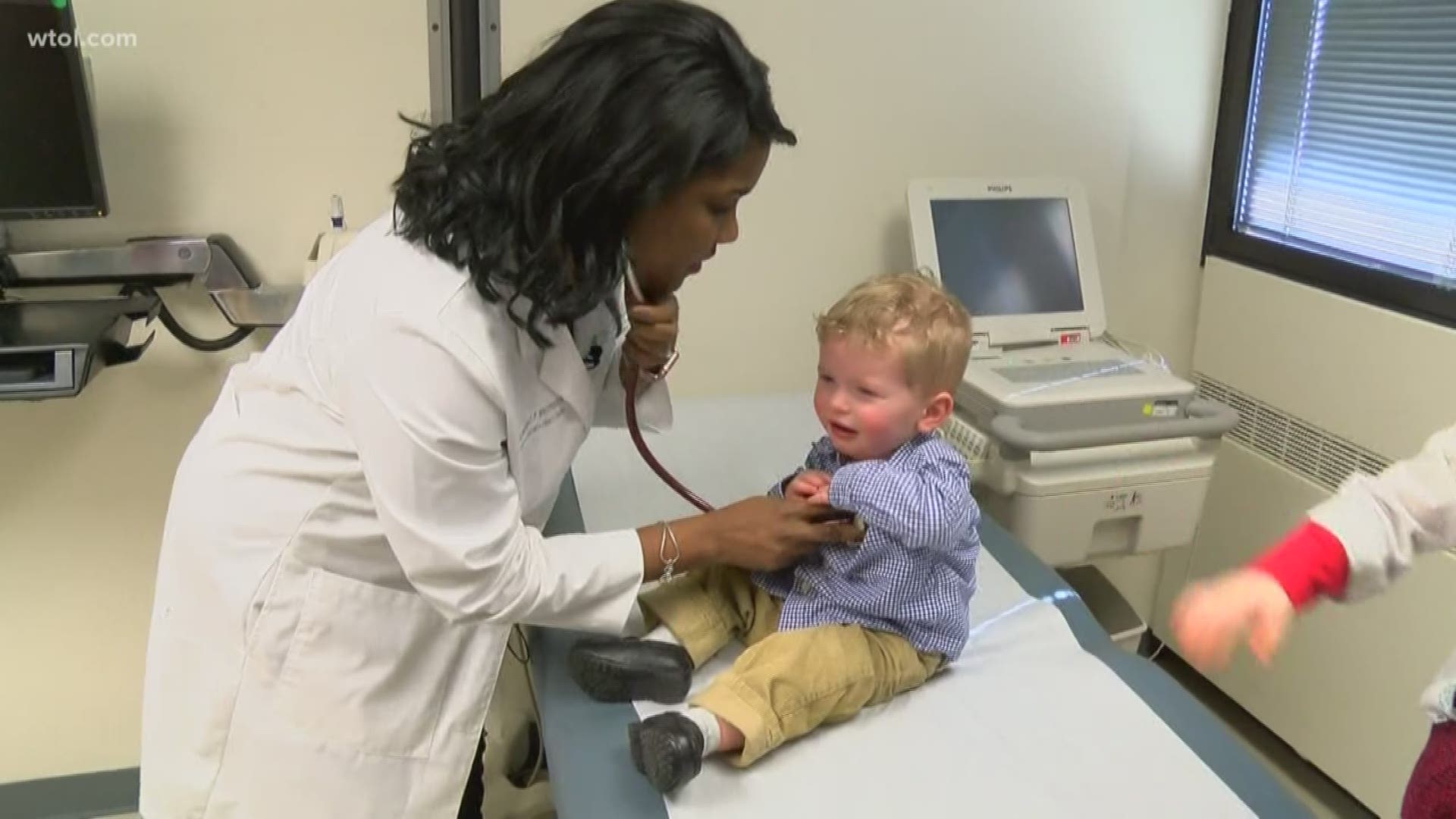TOLEDO, Ohio — There are so many things pregnant moms worry about when it comes to their developing baby. Their heart, for instance, poses a threat for the most common birth defect.
The Yoakams spend a lot of time with ProMedica Pediatric Cardiologist Claudeen Whitfield. Nineteen-month-old Rory was born with a congenital heart defect, something mom Laci learned about at her 20-week ultrasound.
"We went in thinking we were going to find out if he was a boy or a girl and we ended up finding out a bit more, thankfully. If we didn't find out, Rory wouldn't be with us today," she said.
Basically, Rory's pulmonary valve didn't form during Laci's pregnancy, keeping blood from flowing into his right ventricle, which then pumps blood to the lungs.
It turns out, Rory was lucky. Hours after he was born, doctors were already working on his heart.
"The right side of his heart was growing. So, he was a perfect candidate for what we call radio frequency ablation and he's done extremely well," Whitfield said.
With a laser, a hole was burned through that blocked valve to get the blood flowing.
Whitfield said many children with congenital heart disease go under several open heart surgeries before their first birthday. CHD is fairly common. It happens in eight out of 1,000 live births. Luckily, there have been advancements in treatment.
"Most children who have congenital heart disease go on to live a very productive and normal adulthood life," Whitfield said.
Laci said it took awhile for the shock of the news about her son's heart defect to wear off, but she's embraced it, and is now doing something to help other families as vice president of the Pediatric Congenital Heart Association for Ohio.
"It's OK to be scared. It's OK to cry. It's OK to grieve. But, there is support and there are others out there locally and nationally that have gone through something similar and we're here to help," she said.
There is no cure for congenital heart disease and someday Rory will need a new pulmonary valve.
Whitfield said it's still not clear what causes the common defect, but she wants moms to know this: "It's not your fault. There's nothing you could have done to prevent this. it's not what you had to eat the day before or anything."
To find support services in our area, check out the Pediatric Congenital Heart Association website or head over to its Facebook page.

